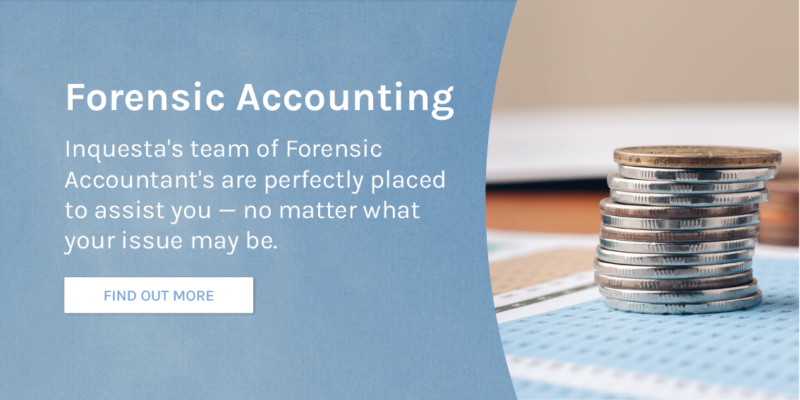Many company owners around the country and the world will be seeking to undertake the process of business valuation in the coming 12 months.
While it is a common process for businesses to undertake, it can be incredibly difficult and highly complicated, particularly for anybody new to the world of ownership.
One of the most complicated aspects in the process is the many potential avenues and business valuation methods you can choose from. From looking at your assets, your earnings, the market in your industry, potential future earnings, and beyond — finding the right technique of valuation for you is key.
Why Value a Business
Valuing a business is not always a high priority for owners, unless it is deemed to be necessary. This is because instructing a specialist to review your business comes with additional costs associated that not all owners will be able to afford without cause. Common reasons to value a business are:
- Divorce
- Exit Strategising
- Estate Planning
- Shareholder Disputes
- Sales/Mergers/Acquisitions
Ultimately, the key reason for valuing a business is to prepare for the future. This can be to prepare for something you know is coming, such as if you were planning to exit the company or there is a potential sale in the works; or planning for something you could likely not plan for, such as divorce or death.
For more information on the most common reasons a company’s owner will seek business valuation, see our blog going into much more detail on the subject.
Factors Affecting Business Valuation
Business valuation is not a fool-proof science. There are a number of potential factors that could seriously impact the accuracy and final sum of the valuation. These factors, should they be ignored, will likely result in significant errors in the valuation. The factors affecting business valuation include: potential growth, company location, the workforce, reputation, and more.
Expected Growth
By looking at the company’s growth prospects, as well as revenue trends for things like the industry and area, you can get a clearer idea of a potential value.
A company with a business model showing significant potential for growth, in an up and coming industry will have a significantly higher value than one without these factors.

Location
They say that in real estate, the location of a property is one of, if not the most important things that marks it as a success or not. Company location is not too different.
The location of a business will have a significant knock-on effect to its value. No matter how good your business model is, or how groundbreaking your unique selling point, if you are in an inappropriate/low potential for growth location then your value will be significantly lower.
Workforce
Assuming the business is still viable, the workforce left over after any sale or changing of hands will play a key role in the total value. A high potential company that has lost key staff members will need to spend money to train new people — this will be affected in the value.
Conversely, a company with a trusted, experienced workforce ready to hit the ground running after a sale/merger can have a positive impact on valuation.
Reputation
While it may be seen as an intangible asset. A company’s reputation within its local area and community is invaluable. While placing a financial figure to a business’ reputation may be difficult, it should not be ignored.
A company with a poor reputation in its area, or with its core audience/community will struggle to succeed to the level it could. This is the exact sort of factor that will have a knock-on effect to the business’ value.
Simple Business Valuation Methods
The process of valuing a business is not, by any stretch of the imagination, necessarily a simple one. There are a great deal of methods used by different sources — to complicate matters, there are variations on these methods. The most common and simple business valuation methods are the asset, earnings, market value, and future earnings methodologies.
Asset Valuation
The asset valuation method is an approach to business valuation that primarily focuses on establishing a Fair Market Value (FMV), or Net Asset Value (NAV) for the business.
Asset valuation works best for any business with a sizeable catalogue of tangible assets with a physical real-world presence. Examples of tangible assets includes:
- Inventory
- Machinery/Equipment
- Property
- Vehicles
- Land
Non-tangible assets such as community goodwill, brand recognition, and intellectual property would likely not factor into the asset valuation. Similarly, things like inflation, and appreciation/depreciation of assets would also be unlikely to be relevant in this method.
The formula to work out the business value via this method is to deduct the total company liabilities from the sum of the total assets.
Generally, asset valuation will provide a relatively low value for a business compared to other methods because it does not factor in those intangible assets.
Earnings Method
The earnings technique is a method of business valuation for any companies with a track record of earnings and profitability.
Factors taken into account in this method of business valuation include gross income, history of debt (including any repayment), cash flow, and bill payments..
The theory behind this method is that a company that has struggled with cash flow and been unable to pay bills will have a significantly lower value than one who pays all bills on time and maintains a consistent positive cash flow over several years.
Market Value
Market Value approach is another common method of business valuation — it is done to calculate the total value of the company compared to similar business sold in the current market.
Unlike other similar business valuation methods, like asset valuation and the earnings method; market value cannot be applied to every business in the world, t only applies to companies with relevant industry examples.
The market value approach can be utilised to calculate the value of all assets within the business, including both tangible and intangible assets, and beyond.
Future Earnings Methodology
Future earnings methodology is a way to calculate business value based primarily on the idea that the present value of your company should be, at least in part, based on its ability to generate earnings in the future — that the future value of the business should have some influence on its current value.
Factors taken into account when establishing a value based on future earnings include:
- Current cash flow
- Annual rates of return
- Expected future earnings
- Estimate future value
Which Business Valuation Method is Best For You?
Establishing which business valuation method for you can be difficult. We have earmarked four potential methods for you (Looking at future earnings, the market, earnings, and assets). Each of these examples can provide clarity and consistency of value. However, this will depend on the unique factors of your business — the industry, financial situation, history, potential, etc.
Additionally, some business valuation methods will be more relevant to certain companies and industries. For example, the cost method may be effective for a factory with a great deal of tangible assets such as machinery and equipment, as well as stock.
Ultimately, there is no one true approach to business valuation that will apply across the board for all company’s. While in this blog we have introduced you to four noteworthy methods, it is important that you go away and do additional research, or contact a specialist to learn more about each possible method of valuing your business to work out which might be best for your situation.
How Often Should Business Valuations Take Place?
The question of how often should your business valuation take place depends on the ultimate purpose of the valuation. If a sale/merger is on the horizon then a value should be sought quickly. Conversely, if you just want your affairs to be in order for once you pass, then you may wish to arrange for regular valuations every 12 months.
Additionally, any significant changes of circumstance should lead to the valuation of your business becoming more of a priority. Things like changes to economic circumstances, changes to management, unforeseen increased competition, or a global event such as the COVID-19 pandemic would all have been situations that may require a new business valuation.
How Forensic Accountants Help with Business Valuation
The role of a forensic accountant in helping with business valuation is to utilise their extensive expertise and experience to — as accurately as possible — formulate a clear number for the value of your business. Forensic accountants will use their knowledge to ‘follow the money’ and can easily spot any potential misconduct or suspicious activity that could affect your valuation.
Each and every business valuation will be different. What works for one company may not work so perfectly for another. A seasoned and experienced professional forensic accountant can enter your business, assess your situation, and help you devise the best possible method of valuing your business.
A forensic accountant can also act beyond the business valuation to help increase your company value in the long run by identifying key areas of the business to improve.
Why Work with Inquesta When Valuing Your Business
Business valuation can be incredibly important for company owners — from setting up for a sale to preparing your assets before death, the need to get your business valued efficiently and effectively is high.
Should you feel the need to have your business valued, it is key that you know which method is best for you, and where to turn for assistance. Inquesta have a dedicated and highly experienced team of forensic accountants on hand to assist you in anything you need — no matter how big or small the job, we can help.
We have seen everything, and worked with companies of all shapes and sizes, in all manner of industries, around the globe. We know what to look for, and can utilise our expertise and knowledge for your benefit.
If you are in the process of undertaking a business valuation for complicated divorce proceedings, we recommend checking out our booklet.
An inaccurate and poorly done valuation can put your future plans in jeopardy. Inquesta are here to guarantee that you get your company valued right the first time.
To find out more about what Inquesta can do to assist your business valuation and more, contact a member of our team today or book a free consultation.



